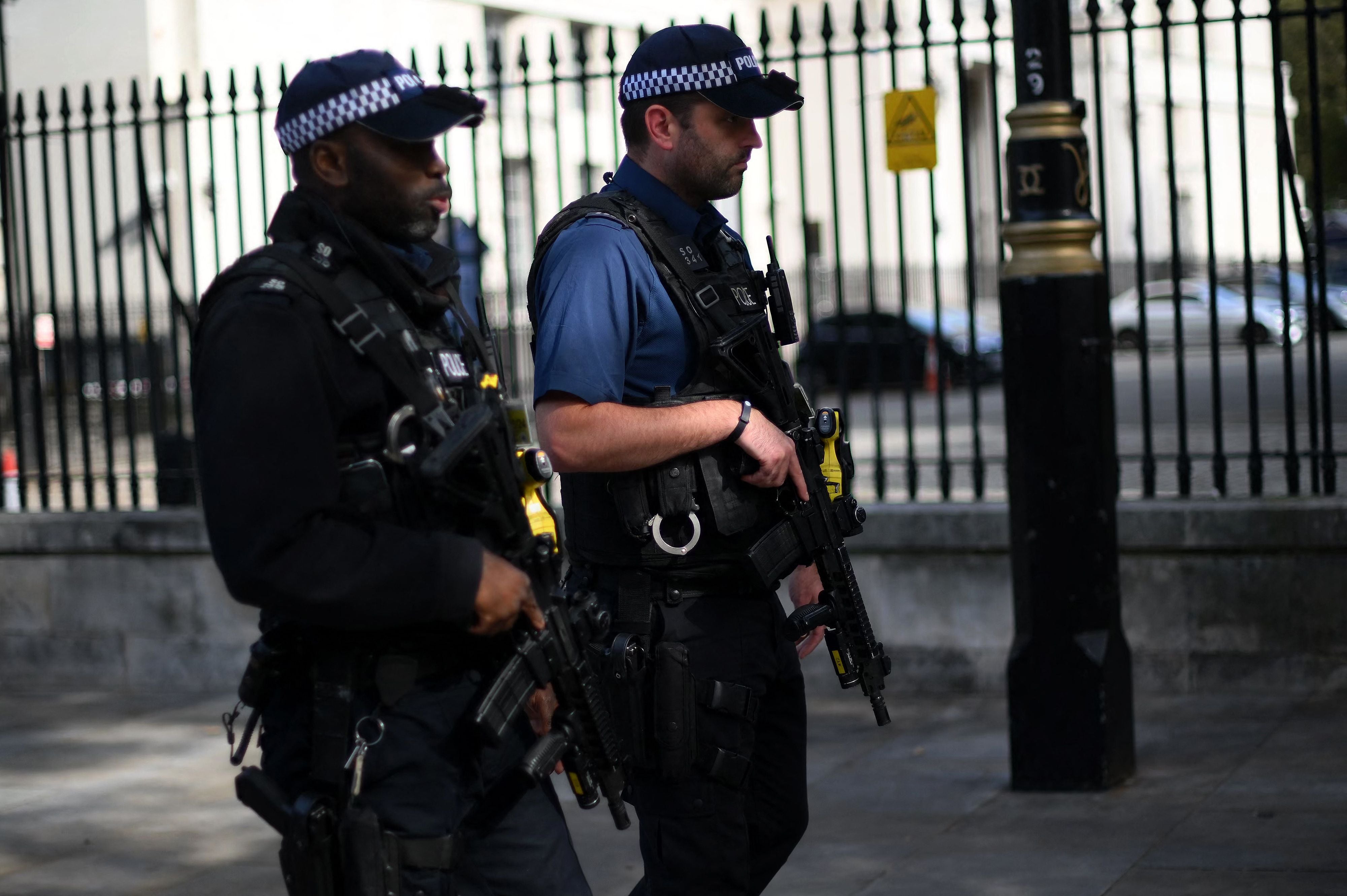Israel-Gaza war a ‘radicalisation moment’, warns Britain’s counter terror chief
Britain faces a “dangerous climate” with police seeing an “extraordinary” surge in referrals for terrorist content

Britain’s counter terror chief has warned the war in Israel-Gaza was a “radicalisation moment” and the country faces a “dangerous climate” amid unprecedented surges in terror referrals.
Matt Jukes, the head of Counter Terrorism Policing, has revealed his teams have seen a 13 per cent spike in referrals to Prevent programs and 15-fold increase in reports of extremist online content since Hamas launched its attack on Israel on October 7.
The surge in activity comes as the risk from state threats is at the “most acute” level since the Cold War, he said, as he echoed David Cameron’s warning that Britain faces “very unstable, uncertain and dangerous times”.
Officers have received 3,000 referrals to the Counter Terror Internet Referral Unit of objectionable material since October 7, some 700 of which have been identified as having a UK link and potentially breaching terror legislation.
Initially this represented a 15-fold increase on previous reporting levels, but later levelled off to a seven-fold rise.
“That is extraordinary and demonstrates the volume and intensity of online rhetoric around the ongoing conflict,” the counter terror chief said.
“What we have seen since 7th October is a spike which is higher and more sustained than ever before.”
Characterising the ongoing war on the Middle East as a “radicalisation moment”, he said the event had “the potential to push the susceptible towards terrorism”.
He added: “This is not simply rhetoric. We are seeing signs of that intense risk across a number of our areas of activity.”
Although the country’s terror threat level remains unchanged at ‘substantial’, Mr Jukes said it is important recognise that “radicalisation can have a long tail”.
Since the conflict broke out there have been 33 arrests for alleged terrorism offences, seven of which have been charged.
In the period from October 7 to the New Year there was also a 13 per cent increase referrals to Prevent programs, aimed at stopping individuals being from being drawn into extremism, compared to the same period last year. The rise is “directly related” to the conflict, he said.
He also urged the public to trust their instincts and report any concerns. In the two weeks following 7 October, calls to the terror hotline doubled, with the number of helpful calls up four-fold.
There was also a 25 per cent surge in intelligence flowing through police channels in the aftermath of the conflict.
At the same time counter terror police have seen four-fold increase in case work relating to hostile state threats from countries including Iran, China and Russia – leading Mr Jukes to agree with foreign secretary Lord Cameron’s recent comments at Davos that the UK is facing “very unstable, uncertain and dangerous times”.
A new investigative team has been launched dedicated to state threats as we head into a year which will see major elections in both the UK and the US.
Of around 20 arrests for alleged official secrets breaches in the past five years, more than half took place in 2023, he said, adding that they are seeing a growing overlap between state threats and organised crime groups.
“Our sense is that the challenge is greater now than since the days of Cold War,” the chief said.
Subscribe to Independent Premium to bookmark this article
Want to bookmark your favourite articles and stories to read or reference later? Start your Independent Premium subscription today.
